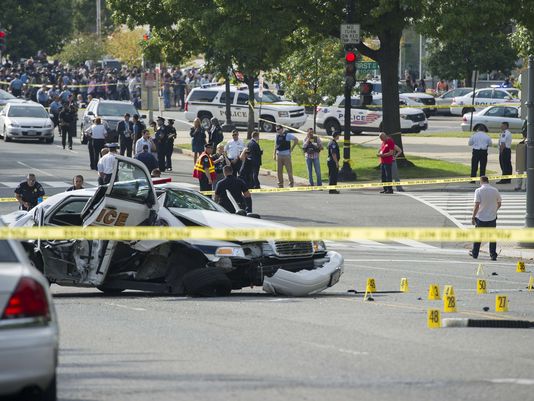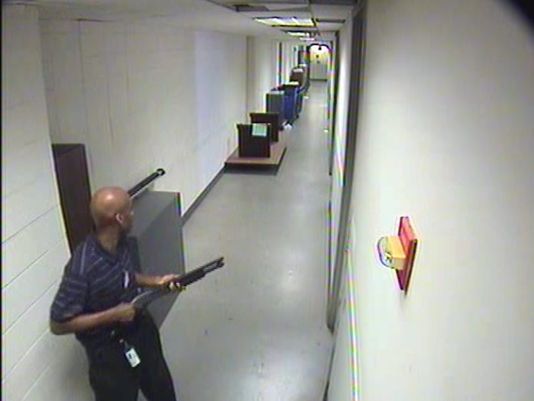
FROM MY FILES FRIDAY: I’d already decided to reprint this blog when news broke yesterday about a woman who attempted to drive into the White House grounds and then directed her speeding car toward the U.S. Capitol. Although she was unarmed, she certaintly can be seen in news footage driving dangerously. Cars can be deadly weapons and the point of this blog is not to debate whether the officers who shot her used unnecessary force. {After last month’s shootings at the Washington Naval Yard, the police have been on high alert.} But I noticed that within hours after the woman was fatally shot, stories started to circulate that she had a mental illness. At this writing, that hasn’t been confirmed, but if it is, will the public view her death differently? I think so.
FATAL SHOOTINGS AND MENTAL ILLNESS: BLAMING THE VICTIM, first published April 22, 2013.
If a schoolchild overturns a desk during an epileptic seizure and it hits a classmate and breaks that student’s foot, no one demands that the child with epilepsy be put into juvenile detention and punished. However, if that schoolchild has a mental illness and accidentally overturns a desk, injuring someone, that child is sent before a juvenile court judge for punishment because of his/her actions.
This observation came from Summit County Juvenile Court Judge Linda Tucci Teodosio who spoke last Friday during a Mental Health and Criminal Justice Symposium held in Cuyahoga Falls, Ohio. I gave the symposium’s keynote address.
Judge Teodosio’s point was that our society views mental illnesses differently from other physical illnesses and frequently holds persons with severe mental illnesses responsible for getting sick.




